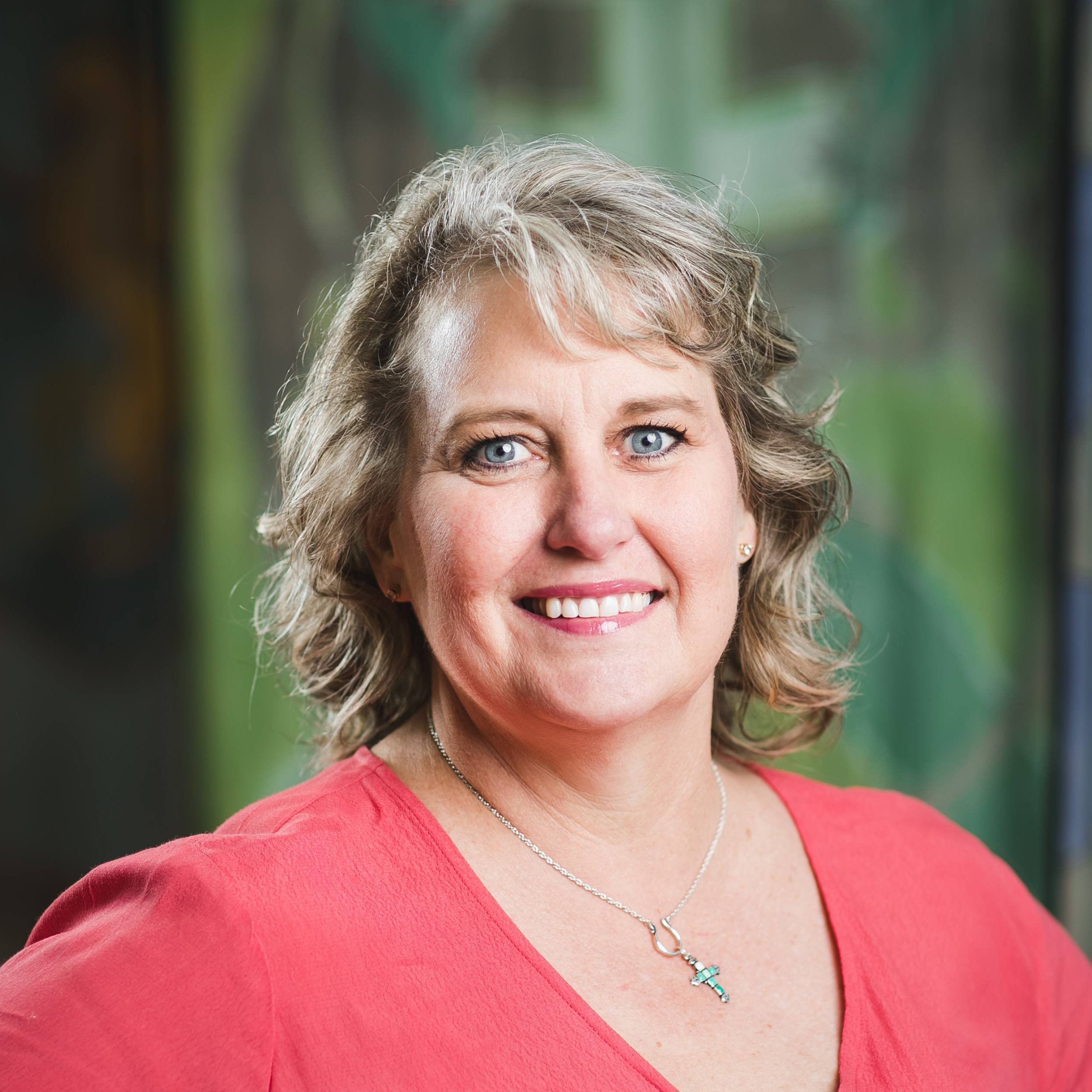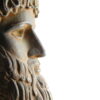Math in the Classical School
By Amy Haaland
Amy Haaland has taught for more than 30 years in a variety of school settings and has served on PCS faculty since 2019. She earned a B.S. in elementary education from New Mexico State University. In addition to teaching 4th grade math and Bible, Mrs. Haaland coaches the PCS golf team and directs the Created for a Purpose fine arts camp for girls at her church. She and her husband have four daughters.
My experience as a grammar school student many, many years ago left me ambivalent towards math at best. When studying to become a teacher, my specialty was reading, and I took only the math courses that were required. I still love to read, and diving into a book at the end of a long day is my reward and refuge from the stresses of the world around me. But what I have come to realize after years of teaching is that I love math. I LOVE MATH!
In pondering why I did not like it as a student, I can only surmise that it was because I did not understand it. Plato had my number when he said, “Any fool can know, the point is to understand.” I knew how to do it- I just did not understand it. It was a means to an end (the answer) and not an end in itself. It was in finally understanding that the end was the beginning, that my love bloomed.
The chief end of man is to glorify God and enjoy Him forever.
Forever. This means that all of God’s creation is ours to enjoy, including math. There is such intricate beauty in math. It surrounds us in patterns seen on pinecones and pineapples and flowers. It propels rockets into space and returns them back home. It shows up in the architectural wonders of the world and silences our thinking with awe. We wonder at the creations of the ancients and ponder the methods they used to build pyramids, temples, aqueducts, and amphitheaters with perfect acoustics. We do not have to understand all of math in order to appreciate it, but our appreciation is the beginning of our understanding.
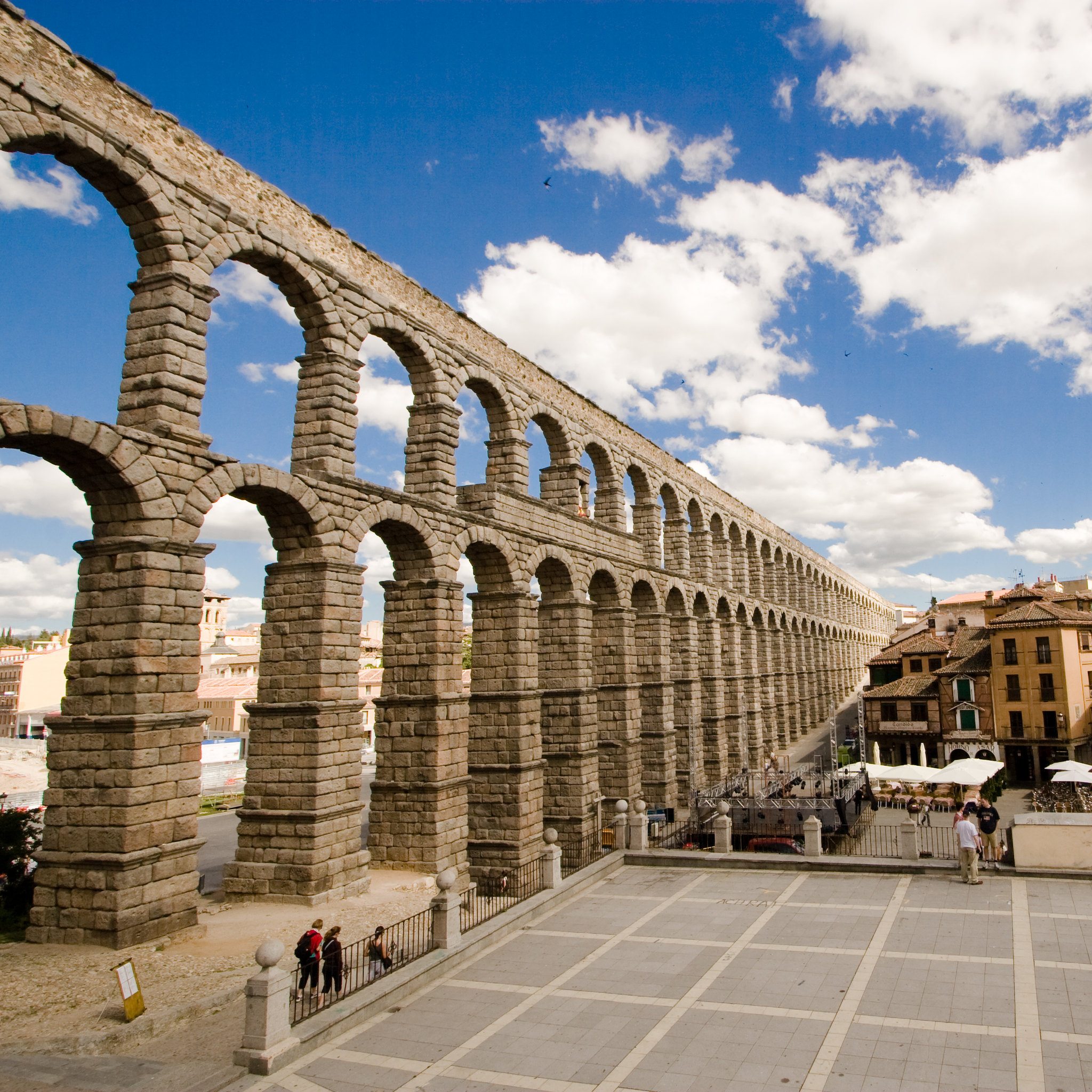
“Segovia, Spain” by Éole is licensed under CC BY-NC-SA 2.0.
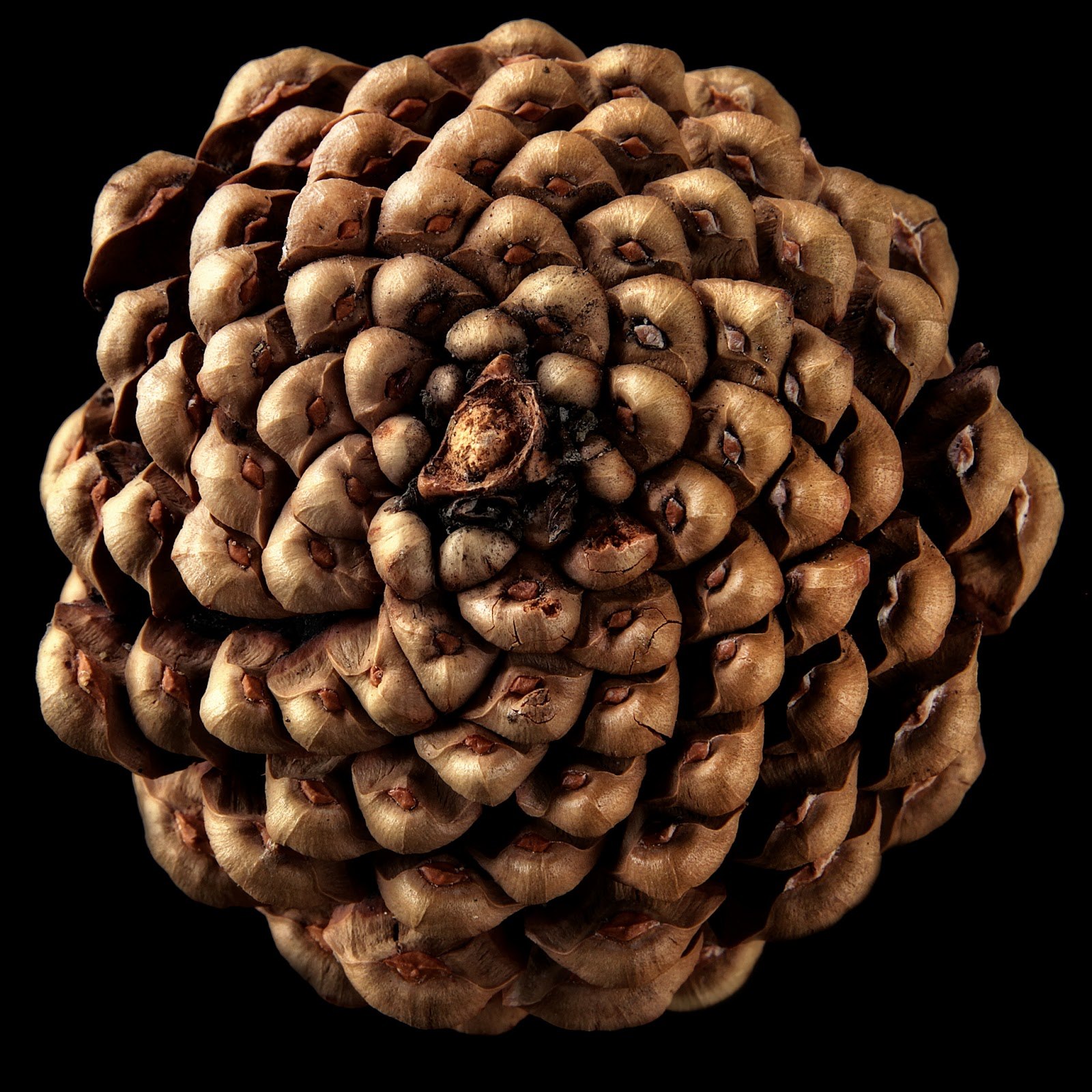
“Fibonacci” by arbyreed is licensed under CC BY-NC-SA 2.0.

Image Credit: ESA/NASA/Samantha Cristoforetti
In classical education, our end goal is not the diploma that allows us to pursue a degree. It is not to amass a mountain of information just for information’s sake. Our goal is to nurture the love of learning that has been given to us as image bearers of Christ, then to take that knowledge which cultivates us towards holiness and use it for God’s glory. We have been created to learn. We have been given the gift of curiosity and a thirst for knowledge. Aristotle said, “The pleasure arising from learning will make us think and learn all the more.” At Providence Classical School, we endeavor to create an atmosphere conducive to discovery of beauty, goodness, and truth; all of which are found in the study of mathematics.
“The chief aim of all investigations of the external world should be to discover the rational order and harmony which has been imposed on it by God and which He revealed to us in the language of mathematics.”
– Johannes Kepler
Math is not just a subject to be learned, but discoveries to be observed about God’s created world and the orderliness in which He created it.
To that end, our teaching reflects those ideas. As each new “topic” of math is introduced, the concept is taught by seeing, touching, building, drawing, observing, playing, connecting to prior knowledge, questioning, and discussing. The automaticity of mathematical ideas (and facts) comes naturally with exposure, exploration, and thought. Classical education is language-based and the conversations had about mathematics are what help to develop a love for mathematics in our students. We are not satisfied with just rote learning of facts, but we push beyond that to the understanding of the concepts that make the facts true and unchanging. This truth of math — that one plus one is always two — is proof of an orderly God, an unchanging Father who desires us to understand Him more through discoveries of His creation.
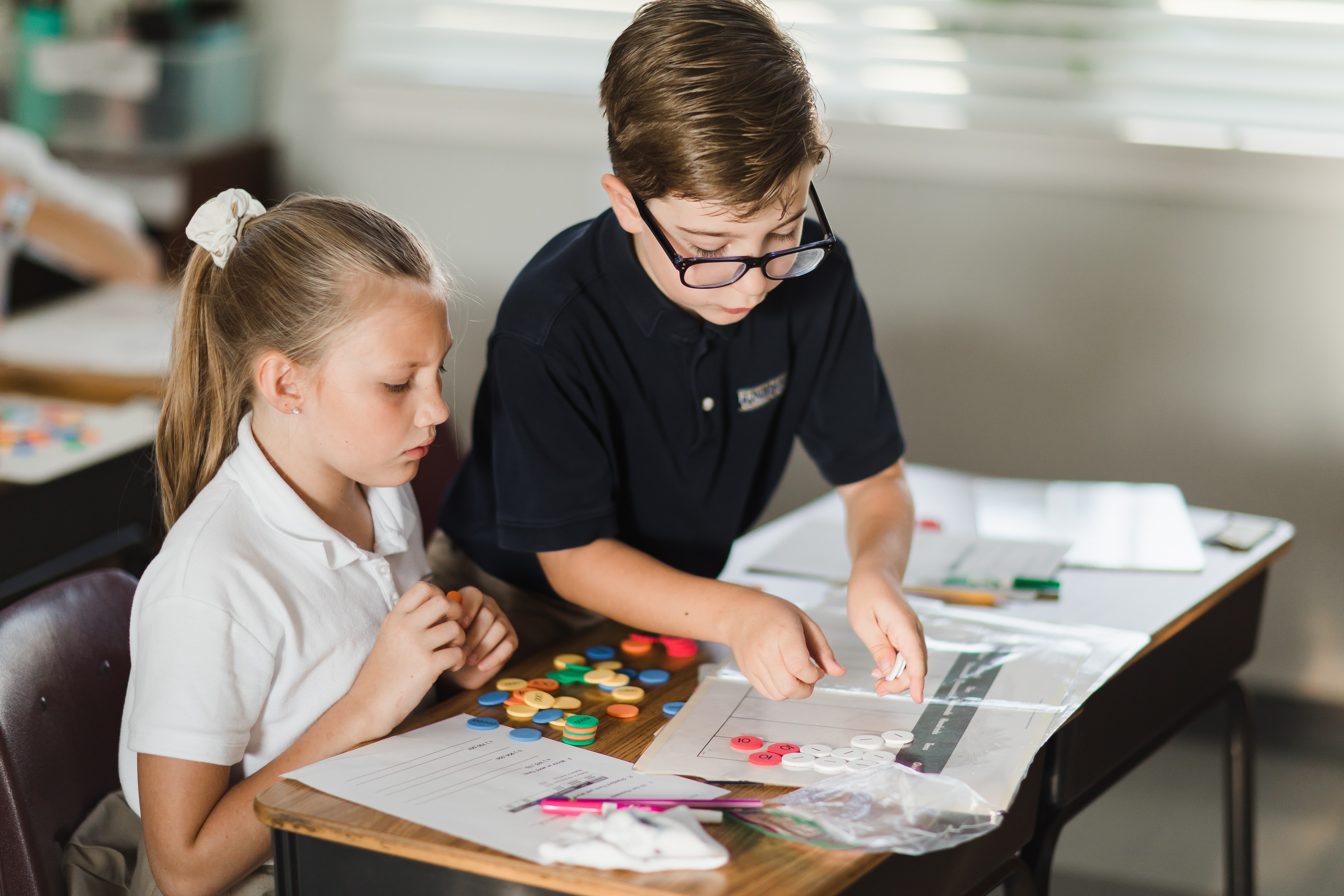
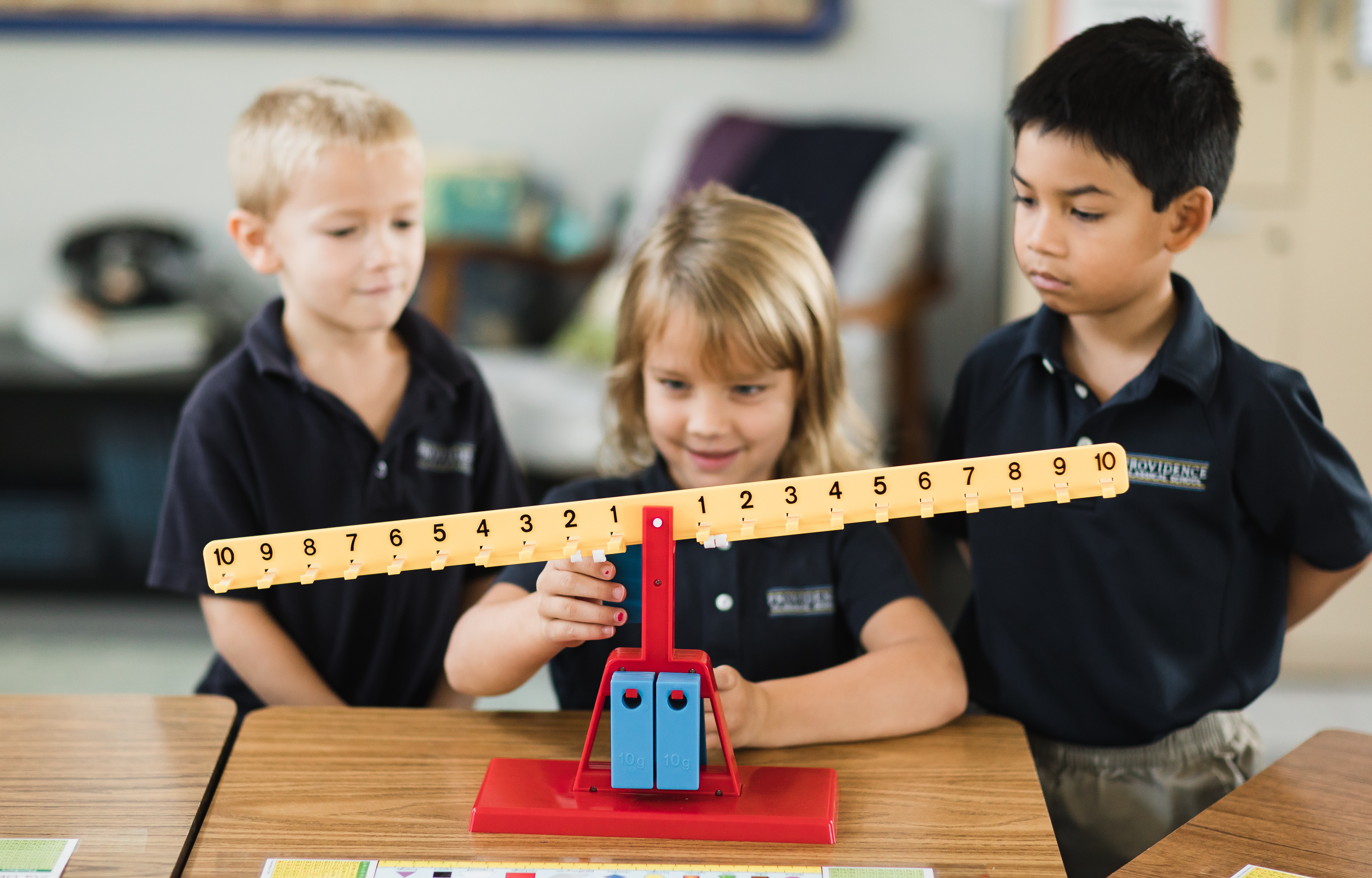
“We do not prove that mathematics is a creation of God because it exhibits His attributes. We believe that He created mathematics, thus expect to find evidence of His handiwork, and are blessed in the finding… A Christian school that is content only with the teaching of manipulatory skills of arithmetic, algebra, and geometry blinds the student’s perception to all but a fraction of the glory of God reflected in the unique mirror of mathematics.”
– Larry L. Zimmerman, The Christian Teacher, Spring, 1968
When we take time to ponder the patterns, the intricacy, the absoluteness, and the magnitude of math, we experience God’s goodness and glory.
Just as we grow in our faith in God over time spent in His word, talking with Him, pondering His creation, and experiencing His goodness, so also our love and appreciation for God grows along with our understanding of the numbers and patterns that He created. The correct study of mathematics draws us closer to our Creator!
As we move into summer, I would challenge our families to wonder and ask questions about the math seen in nature as well as everyday math. Talk about the relationships evident in numbers that are right in front of our eyes. Look for symmetry (leaves, flowers, faces, etc…), and for patterns (stars, animal markings, fingerprints) in nature. Look for math. Talk about math.
If you have ever said, “I’m not a math person,” I would challenge you to rethink that thought! Mathematics is not a product of human thought, but a display of God’s love. His perfect love for us. Our discovery and enjoyment of math is one more avenue to understanding the God of all creation. It is not an end, but a beginning. And it is for all of us.
For since the creation of the world God’s invisible qualities – his eternal power and divine nature – have been clearly seen, being understood from what has been made, so that people are without excuse.
Romans 1:20
For a deeper understanding of what classical Christian education looks like in the classroom, we recommend reading 10 Differences Between Conventional Christian Schools and Classical Christian Schools from The Classical Difference magazine, Winter 2018.
For more information on classical Christian education at Providence Classical School, visit our Academics page.
Header photo by Steve Harvey on Unsplash




